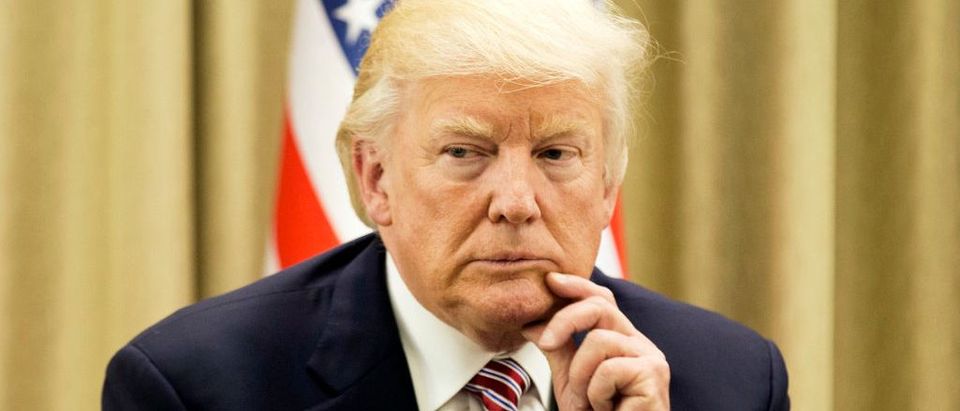Less than six months ago, Donald Trump was sworn in as president of the United States. People who did not vote for and those – even among conservative ranks — who do not support Trump wish for him to resign from office. There are valid merits in the discussion both for and against that idea. What is the intention behind this movement, though? After all, established procedures are in place concerning the line of succession — since codified in the 25th Amendment to the U.S. Constitution and the Presidential Succession Act of 1947 — for when a president vacates his sworn duty, whether by death, disability or resignation. Thus, should such a scenario play out that would have Trump step down for whatever justification or motivation, the current vice-president, Mike Pence, would become president. If Pence, for some unforeseen reason, is unable to take office, then it passes to, in order, the Speaker of the House of Representatives, President pro tempore of the Senate — respectively, Paul Ryan and Orrin Hatch — and down through the heads of the U.S. Cabinet beginning with the Secretary of State, currently Rex Tillerson.
Notwithstanding this established setup for the emergency transition of power, a lingering question must be asked: is there expectation for a different outcome to this hypothetical circumstance? It seems most likely for some angry and frustrated voters, especially within staunch liberal ranks. Perhaps, a new presidential election being held…one in which, of course, a rebooted Hillary Clinton campaign – by the miracle of not self-destructing again – wins? Sorry, but that is not how our republic works. This is not parliamentary-style politics, where coalitions and governments are re-aligned by calls for new elections at the whim of controlling factions. Yet, there clearly appears to a be a notion among activists and pundits clamoring for Trump’s resignation that this is exactly what would happen – the entire administration thrown out of office, and new elections held. This is nothing less than a fantasy, and one more argument for the desperate need for civics education.
Two congruent but nonetheless moot points: Hillary Clinton lost the election, and Donald Trump is president. Simply because that outcome cannot be accepted, even begrudgingly, and strong disagreement exists, no matter how controversial, prudence and sensibility implore against abandoning core national principles — even if, and most especially, personal ones contrast with them and fellow citizens’ mindset concerning their application. This is how America works, divided yet united in common cause no matter who holds office. Some even have suggested, and not subtly, that a coup must occur to restore balance and order from those who allegedly have hijacked and rigged the system in their favor. Only eight years ago, and during the subsequent ones that followed, such talk by those opposed to the president and his policies was deemed uncivil, unpatriotic and even treasonous. Ironic, and quite hypocritical, on the part of those who claimed as much now that the pendulum has swung back.
This is not a defense of Donald Trump or his presidency. That said, despite the incessant claims and vapid hyperbole, presumptive or otherwise, circling around his administration, the definitive judgment that many already have so readily handed down is yet, if at all, to be determined. If any turn out to be conclusive of impeachable wrongdoing — potentially leading to either removal or resignation — then that will warrant proceedings for rendering such a verdict. Again, this is how America works, by way of checks on those who would attempt to usurp the balance. So, indeed, persist if you must. Indeed, resist if you must. You very well may get what you asked for; likewise, you very well still may not like the post-Trump outcome. This is part of the American compact, to accept differences in ideology and endure the adversity that comes with that compromise. Otherwise, future political discourse will only further descend and erode into bitter partisanship that would seek to upend every disagreeable outcome simply because it is not the expected one hyped by zealous supporters unwilling to accept the result.


